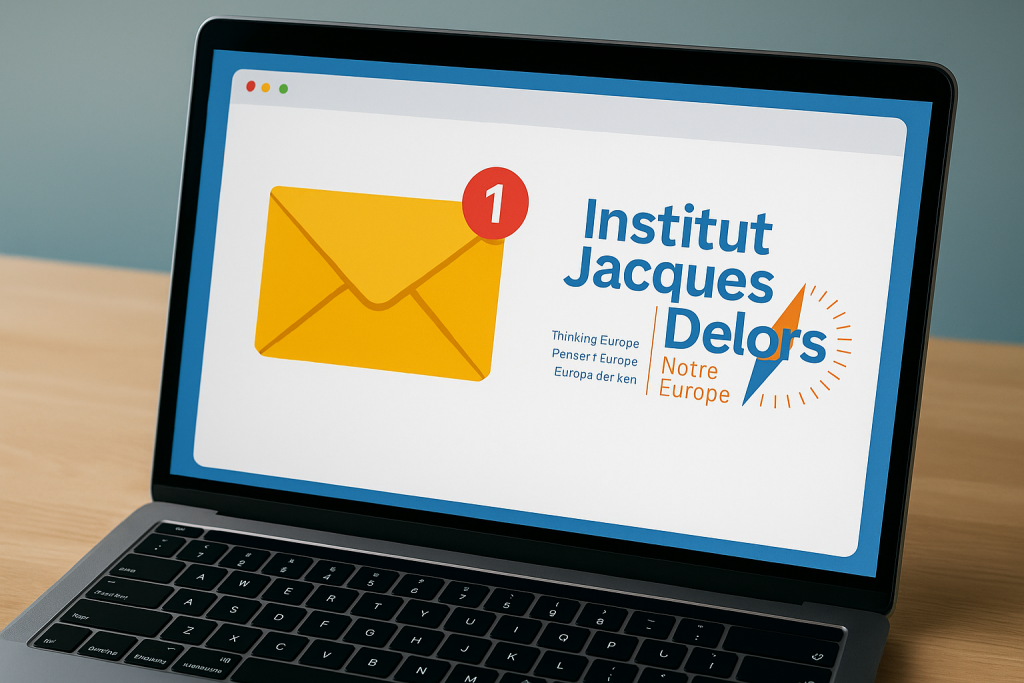
‘What if…’. This simple phrase opens the door to all possibilities, to alternative narratives which, even if they are purely speculative, shed new light on our present. What if, at the end of the Cold War, Russian leaders had chosen a different path? What if they had opted for a model inspired by European integration, building a community of independent states based on economic cooperation and the rule of law, rather than domination and imperialism?
Would we have avoided the conflicts and interference that have scarred the recent history of these nations, and in particular the brutal war in Ukraine? This is a hypothesis, of course. History cannot be rewritten – and the opposite has happened. In his desire to rebuild Russia’s sphere of influence and omnipotence by force, Vladimir Putin has created the conditions for counterproductive violence. As Guillaume Duval explains in his blogpost Why Putin does not want peace in Ukraine because it would destabilise his own power. Continuing the war allows him to keep his economy on life support and avoid the social tensions that would result from the return of hundreds of thousands of veterans.
However, this speculation is not in vain. The very history of the European Union illustrates the power of this model, whereas more often than not, we focus only on crises, slowness or, more recently, humiliations (which are also our reality, it is true). Faced with a ‘brutal and fragmented’ world, we sometimes forget the essential: our Union is an envied historical success, a space of stability, law and prosperity that is unique in the world.
This success is also a source of inspiration far beyond our borders. In Ukraine and Moldova, there is strong demand for Europe, as there is everywhere where the aspiration for peace and multilateralism is shared. Even internally, Eurobarometer after Eurobarometer, a majority of our fellow citizens believe that Europe is more the solution than the problem. But in many countries, they also express anger and fears about their future that we have not yet managed to allay. This mistrust, which is particularly deep-rooted in France, is fuelling the rise of Eurosceptic parties and a demand for more direct democracy.
The situation therefore requires us to respond, but also to return to the fundamentals of what has made us strong. This is the meaning of the work we have carried out this month at the Jacques Delors Institute.
First and foremost, our commitment to the rule of law. Faced with the actions of the Hungarian government, which systematically uses its veto to block aid to Ukraine and dilute sanctions against Russia, the current mechanisms have proved to be a ‘dead end’. That is why our colleagues in Berlin, Thu Nguyen, Ulrich Karpenstein and Luke Dimitrios Spieker, are proposing a bold approach: to launch a new procedure under Article 7, based not on the rule of law, but on a breach of the principle of solidarity. Suspending Hungary’s voting rights is a radical measure, certainly, but it may be necessary to safeguard our security and the Union’s capacity to act.
Our ability to respond together in the face of adversity, next. Donald Trump’s ultimatum, demanding a total ban on Russian fossil fuel exports and sanctions against China, is a ‘very dangerous trap’. As Guillaume Duval analyses, this demand is primarily motivated by the difficulties facing the American oil industry and aims to force Europeans to align themselves with Washington in the Sino-American conflict. While Europe must of course reduce its remaining energy dependence on Russia, particularly for liquefied natural gas, it must do so on its own terms, without giving in to blackmail and at the expense of its strategic autonomy.
Strengthening the resilience of the European economy, with the infographic by Elvire Fabry The EU-Mercosur trade agreement at a time of trade diversification. While businesses face a very tense geo-economic climate, the signing of new rule-based trade agreements offers more predictability, stability and new destinations for exports. This infographic reviews the commitments made in the agreement and its expected impact as the text is now ready for ratification by the Council and the European Parliament.
Our openness to the world continues with Claudia Azevedo’s Joint Policy Brief in Brussels, which presents a new generation of partnerships for the European Union Clean Trade and Investment Partnerships (CTIPs). Their main objective is to align the EU’s trade and industrial policies with its climate goals. The aim is to redefine global supply chains, promote cooperation on clean energy and technologies, and support regulatory cooperation with partner countries. Rather than replacing existing trade agreements, CTIPs are designed to be a faster, more flexible and more targeted approach, making trade compatible with European commitments to combat climate change.
Finally, the ambition of a geopolitical Europe still under construction and in disarray, explains Nicole Gnesotto. She emphasises the unity of Europeans in their support for Ukraine for almost four years and the progress made, with the level of aid to Ukraine now greater than that of the United States. However, she deplores a certain lack of strategic vision: what is the plan for Ukraine’s security? What is the European project?
And more importantly, our ability to support those in need and prepare for the future. The REACH project, to which we contribute, aims precisely to reinvent citizen engagement around European issues, in particular the rule of law and enlargement. Giving a voice to citizens, including the youngest and under-represented groups, is essential to strengthening the democratic legitimacy of our Union and allaying fears. Similarly, faced with a European youth that is ‘discouraged, perhaps even desperate’, there is an urgent need to restore faith in the future, as Jacques Delors urged us to do, by strengthening the tools that bring Europe to life, such as the Erasmus programme.
So yes, history could have taken another course. But the future remains to be written. And as the American dream fades, why not reinvent a European dream? Instead of dwelling on our weaknesses, let us embrace who we are and act to strengthen what we have built together. By cultivating this fighting spirit and determination we will reassure our fellow citizens, commit to catching up economically and in terms of security, while continuing along the path of ecological transition – and convince others that the future can indeed be different, if we act together and act now.




